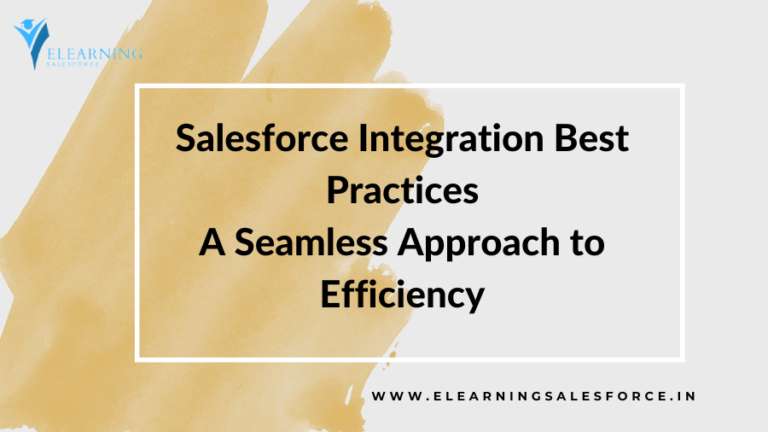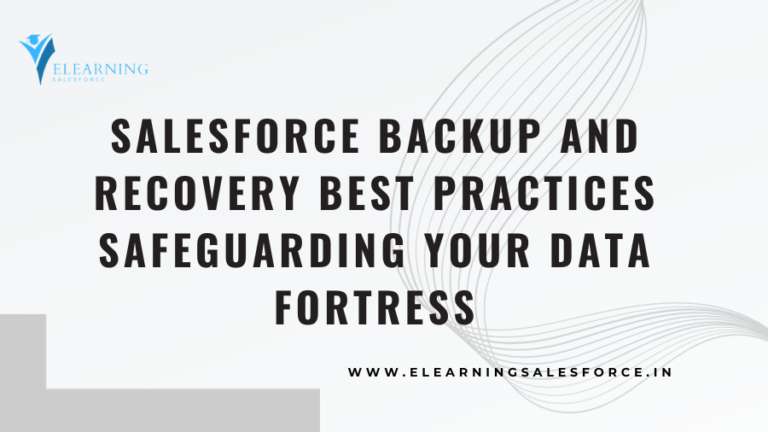Salesforce is one of the most popular customer relationship management (CRM) platforms used by businesses of all sizes. It is a powerful tool that allows organizations to manage customer interactions, automate processes, and streamline workflows. To get the most out of Salesforce, it is essential to have skilled developers who can customize and extend the platform to meet the unique needs of the organization. That’s where the Salesforce developer course in Pune comes in.
In this blog, we will take a closer look at the Salesforce developer course and what it entails. We’ll discuss the skills and knowledge you can expect to gain from the course, as well as the benefits of becoming a Salesforce developer.
What is the Salesforce Developer Course?
The Salesforce developer course in pune is a comprehensive training program that teaches individuals how to develop and customize Salesforce applications. The course is designed to provide students with a thorough understanding of the Salesforce platform and its various tools, as well as the skills necessary to build custom applications and integrate Salesforce with other systems.
The course covers a wide range of topics, including:
- Apex Programming Language
- Visualforce Framework
- Lightning Components
- Salesforce Database
- Salesforce Security
- Salesforce Integration
- Salesforce Deployment
- Salesforce Administration
- Apex Programming Language
Apex is a powerful object-oriented programming language used to develop custom applications on the Salesforce platform. It is similar to Java and C# and is used to write logic that runs on the Salesforce server. The Salesforce developer course covers Apex syntax, data types, control structures, and other essential concepts that are required to write efficient and scalable Apex code.
- Visualforce Framework
Visualforce is a framework used to develop custom user interfaces for Salesforce applications. It allows developers to create pages that are specific to their business needs and can be customized to display data in various formats. The Salesforce developer course covers Visualforce components, page layouts, controllers, and other essential concepts required to develop custom interfaces.
- Lightning Components
Lightning Components is a framework used to develop custom, reusable components for Salesforce applications. It allows developers to create responsive, mobile-friendly interfaces that can be used across multiple platforms. The Salesforce developer course covers Lightning Component architecture, markup, controllers, and other essential concepts required to develop efficient and reusable components.
- Salesforce Database
Salesforce has a robust database that allows developers to store and manage data for their applications. The Salesforce developer course covers database concepts such as objects, fields, relationships, and queries. It also covers data manipulation languages such as SOQL and SOSL, which are used to retrieve data from the Salesforce database.
- Salesforce Security
Security is a critical aspect of any Salesforce application. The Salesforce developer course covers various security features such as profiles, roles, permissions, and sharing rules. It also covers how to secure custom applications by implementing security best practices.
- Salesforce Integration
Salesforce can be integrated with various external systems, such as ERP, HR, and marketing automation tools. The Salesforce developer course covers various integration methods such as REST, SOAP, and Bulk API. It also covers how to integrate Salesforce with other systems using middleware tools such as MuleSoft.
- Salesforce Deployment
Deploying custom applications in Salesforce requires careful planning and execution. The Salesforce developer course covers various deployment methods such as Change Sets, Salesforce DX, and Metadata API. It also covers best practices for deploying custom applications and managing change in Salesforce.
- Salesforce Administration
As a Salesforce developer, you will be responsible for managing custom applications and ensuring they run smoothly. The Salesforce developer course covers various administration tasks such as user management, data management, and application maintenance.
What is the qualification for Salesforce developer?
To become a Salesforce developer, there are several qualifications and skills that are typically required or beneficial. These qualifications may vary depending on the specific role and level of expertise desired, but here are some common requirements and considerations:
- Education and Background: A bachelor’s degree in computer science, information technology, or a related field is often preferred. However, practical experience and certifications can sometimes compensate for formal education.
- Salesforce Certifications: Salesforce offers a range of certifications that demonstrate your proficiency in different aspects of the platform. For developers, the most relevant certifications include:
- Salesforce Certified Platform Developer I
- Salesforce Certified Platform Developer II
- Technical Skills: Proficiency in various programming languages, such as Apex (Salesforce’s proprietary language), JavaScript, HTML, CSS, and SQL, is important for developing custom solutions and integrations on the Salesforce platform.
- Experience: Hands-on experience developing and customizing applications on the Salesforce platform is crucial. This could include building custom objects, workflows, triggers, Visualforce pages, Lightning components, and integrations with other systems.
- Problem-Solving Skills: Salesforce developers need to be adept at solving complex technical problems and creating efficient solutions that align with business requirements.
- Version Control: Familiarity with version control systems (e.g., Git) is important for collaborative development and managing changes to code.
- Agile Methodology: Understanding of agile development practices and methodologies, such as Scrum, can be valuable for working effectively in development teams.
- Communication Skills: Clear communication is essential for collaborating with other developers, stakeholders, and business users to understand requirements and deliver effective solutions.
- Continuous Learning: The technology landscape is always evolving, and staying up-to-date with the latest Salesforce features, updates, and best practices is important for a successful Salesforce developer.
- Soft Skills: Problem-solving, attention to detail, time management, and the ability to work both independently and as part of a team are all valuable traits for a Salesforce developer.
Remember that the specific qualifications may vary depending on the job posting and the organization’s needs. Entry-level positions may have more lenient requirements, while senior or lead developer roles might demand more extensive experience and expertise. It’s also worth noting that practical hands-on experience and the ability to demonstrate your skills through projects can often be just as important as formal qualifications.




